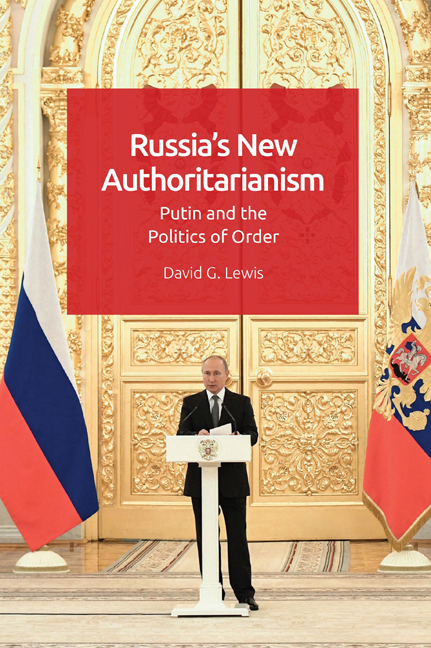Book contents
- Frontmatter
- Contents
- Preface
- Acknowledgements
- Note on Transliteration and Translation
- One Authoritarianism, Ideology and Order
- Two Carl Schmitt and Russian Conservatism
- Three Sovereignty and the Exception
- Four Democracy and the People
- Five Defining the Enemy
- Six Dualism, Exceptionality and the Rule of Law
- Seven The Crimean Exception
- Eight Großraum Thinking in Russian Foreign Policy
- Nine Apocalypse Delayed: Katechontic Thinking in Late Putinist Russia
- Conclusion
- Bibliography
- Index
Seven - The Crimean Exception
- Frontmatter
- Contents
- Preface
- Acknowledgements
- Note on Transliteration and Translation
- One Authoritarianism, Ideology and Order
- Two Carl Schmitt and Russian Conservatism
- Three Sovereignty and the Exception
- Four Democracy and the People
- Five Defining the Enemy
- Six Dualism, Exceptionality and the Rule of Law
- Seven The Crimean Exception
- Eight Großraum Thinking in Russian Foreign Policy
- Nine Apocalypse Delayed: Katechontic Thinking in Late Putinist Russia
- Conclusion
- Bibliography
- Index
Summary
Our western partners, led by the United States of America, prefer not to be guided by international law in their practical policies, but by the rule of force.
Vladimir Putin (2014a)The decision to incorporate Crimea into the Russian Federation in March 2014 was a stark example of exceptionalism in foreign policy. It was a decision that violated the rules of international order, but gained the support of the majority of the Russian and Crimean population. Viewed internationally as an illegal annexation and a blatant violation of international law, in Russia it was portrayed as profoundly legitimate, meeting the demands of historical justice and democracy. Russia's decision to incorporate Crimea was presented as a step towards a reformed international order, in which Russian subjectivity would be restored, and where Western manipulation of international law in their own interests would no longer be possible. In this way, the geopolitical contest between Russia and the West became also ‘a struggle for the nature of international law’ (Müllerson 2014: 133), a contest between a cosmopolitan vision of universal norms, and an idea of law as embedded organically in local cultures and civilisations, a plurality of laws to reflect a multipolar world.
The Crimean case brings together two fundamental themes of Schmitt’s thought, which some scholars have tended to separate, but which overlap in important ways (Galli 2010). First, it provides a further instance in which sovereignty is revealed through the exceptional decision, in this case with regard to international law and international norms. Russia was internationally isolated after Crimea, but had successfully demonstrated its full sovereignty, understood in Moscow as the ability to take a decision outside the rules and in the face of Western opposition: ‘Geopolitically she is alone, but free’, concluded Dmitry Trenin (2019). Although the decision on Crimea violated international legality, it was nevertheless legitimated in Russian thinking by appeals to democratic support, articulated both in a formal referendum in Crimea, and in the broader ‘Crimean consensus’ that emerged among the Russian population in support of the annexation. The sovereign decision was viewed as reflecting the will of the people, even if it violated international legality.
- Type
- Chapter
- Information
- Russia's New AuthoritarianismPutin and the Politics of Order, pp. 139 - 160Publisher: Edinburgh University PressPrint publication year: 2020



